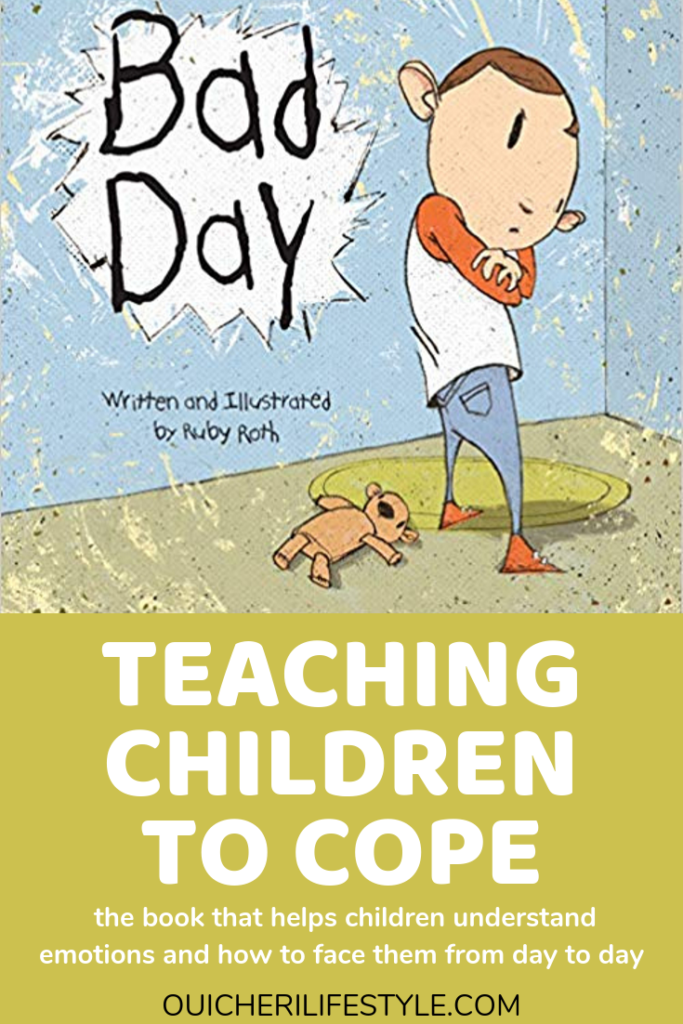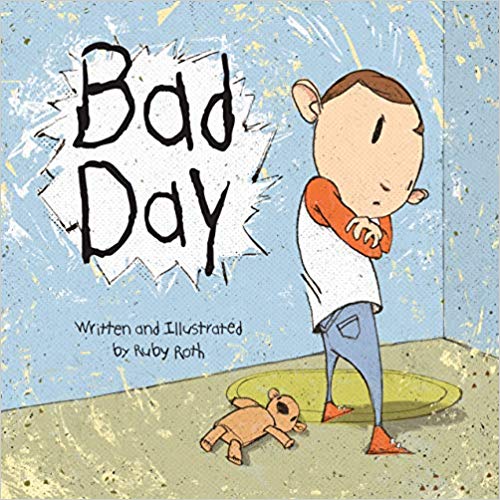I was given a free review copy of “Bad Day”, but was not otherwise compensated. The opinions expressed are my own. I am also a member of the Amazon Associates Program. As an Amazon Associate I earn from qualifying purchases. This article contains Amazon affiliate links, which means that if you click through and make a purchase, I will be compensated at no extra cost to you. Thank you for your support!
The other day I was struck by the fact that nearly half my family is currently struggling or has struggled with mental illness (both immediate and extended). In today’s busy world of technology, social comparisons and processed food, it seems we are forgetting to care for our mental and emotional needs. We are living with increased stress that never seems to decline. Relationships are complex. Lives just keep getting busier and busier.
With so many daily struggles, research shows the huge benefits of teaching children about mental health and problem-solving to buffer them against future mental illness (Stone, 1975) .
That’s why I LOVE that Ruby Roth has decided to confront mental health in a way that children can understand!

In her new children’s book, “Bad Day”, Ruby tells the story of a young boy, Hennie, who doesn’t know how to deal with his emotions. At first, he is dejected and unable to cope with his bad feelings… but then he realizes that he CAN take control of his emotions! Realizing that he is in control, Hennie is able to turn his day around.
I love that “Bad Day” reminds us that it is normal to experience strong emotions. It is normal to feel discouraged. It is normal to have bad days where you want to hide and never come out. But you don’t have to hide yourself or your feelings! In his moment of discovery, Hennie understands why he is feeling so down. Rather than remaining upset, Hennie exclaims:
“Though the day was all wrong, I’m actually STRONG! Li’l me can handle a lot!… I’ll be okay, no matter the day, no matter what goes on outside. No matter the people, their words or their ways, I am my own feelings guide”.
What a good reminder to children and adults that they are STRONG. They can overcome their bad days!
There is much more to face when teaching children about their emotions and mental health, but Ruby’s book opens the door to helping children sort out their feelings.
This and other similar books can be a great doorway to positive conversations about mental health with young children. It’s not an easy topic, but if parents are willing to confront the elephant in the room, there will be more positive outcomes for their children and the entire family 🙂
Please, talk OPENLY with your children. Don’t try to hide emotions and don’t reinforce the remaining stigmas surrounding mental illness. Talk about your own feelings- your children will learn the most from YOU.
And please, give Bad Day a try and see how it can help your children better understand their emotions and get the conversation going.
You can find the book through the link below on Amazon.


Reference:
Stone, G. L., Hinds, W. C., & Schmidt, G. W. (1975). Teaching mental health behaviors to elementary school children. Professional Psychology, 6(1), 34-40. doi:http://dx.doi.org.dist.lib.usu.edu/10.1037/h0076603

Thank you so much for this! I will definitely get this book for my son. He’s needs stories like this!
This sounds like a great book! I have a similar book about feelings that I read with my granddaughter. I learn so much about her, and try to give her words to share with others when difficult times occur.
Another great reason books are awesome is that they help us teach our children! Thanks for sharing. This sounds like a good one. I just went and got another book about emotions from the library for my 3 year old.
Thank you for posting this. I feel like this is an area that a lot of parents don’t know how to approach.
I agree! It can definitely be a difficult topic, but is so important!
Thank you for this review. My sister-in-law is a therapist for children, and I will just have to recommend this to her. She is always looking for books that can help the kids and the parents.